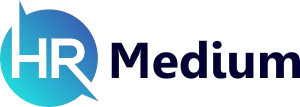Information technology plays a major role in the business of all sectors. From gathering information to finding customers and solving major financial problems, the presence of IT can be felt anywhere.
Human resource management (HRM) handles the activities related to finding people, recruitment, training, development, induction, or rewarding in an organization. The integration of IT into HRM enabled the companies to work with new vigor.
Also Read: Why Remote Monitoring Isn’t the Only Answer for Managing WFH Teams
Explore how IT is influencing HRM to improve streamline HR activities.
IT connects the HRM solutions with the internet, mobile communication, and new media. It can improve its internal processes, uplift core competencies, find relevant markets, and elevate the organizational structure. Information technologies help the HRM department to
- Identify solutions
- Build new ideas
- Find new markets
What information technology brings forth is innovation. An innovation that impacts and changes everything that existed till now – making them better. IT is able to impact the HRM in many ways. Here are a few given below.
1. Enhance Management
Human resource IT tools allow managers to work efficiently and informatively around their teams and procedures. They can measure performance, manage talents, analyze results, design strategies, and engage employees in organizational goals for better performance.
2. Improve Recruitment
Information technology of the 21st century can be integrated with advanced technologies like artificial intelligence to grab hold of better and best talents from the internet. It facilitates effective recruitment for the organization. Processes like talent acquisitions, screening, interviews, selections, etc, can be simplified with advanced IT infrastructure.
3. Optimize Data Management
IT helps organizations to go paper-free in terms of data storage and accumulation. It can automate data collection, classification, storage, and much more. Performance data of employees can be critically analyzed by software that is dedicated to HRM. The IT tools ensure the issues, achievements, or requests go through the proper HR manager approvals and verifications.
4. Reduce Costs
IT tools go through the procedures in a systematic way. This process ensures the deletion of unwanted steps, reducing operational costs and improving work efficiency. Managers are accountable to the company in terms of business revenue generation. They can implement research methods to analyze the profit, yield, utilization, and performance of employees.
5. Automation of HRM
HRM can consist of many tasks that are monotonous, time-consuming, and repetitive. Advanced technologies can help the HR teams to automate such processes by creating workflows. It can eliminate paperwork, speed-up task executions, and boost efficiency.

